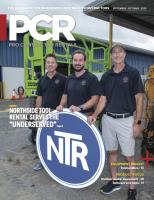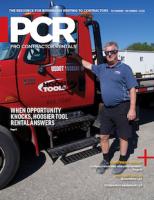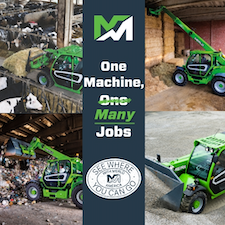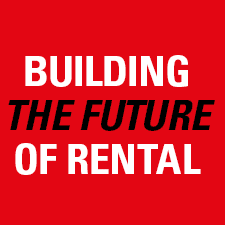Analysis from the Propane Council examines CARB ban on internal combustion engine (ICE) forklifts
Research reveals propane forklifts provide a smaller carbon footprint than electric forklifts under several conditions, playing a significant role in decarbonization.
A new environmental comparative analysis out today debates California Air Resources Board (CARB)’s recently proposed ban on internal combustion engine (ICE) forklifts.
CARB’s mandate would ban all internal combustion engine forklifts including hybrid electric solutions, only allowing battery-powered and hydrogen fuel cell forklifts.
The analysis, Fork(lifts) in the (Off) Road: Should We Ban Internal Combustion Engines for Electric? compares the lifecycle emissions profiles of propane and electric-powered forklifts, including carbon dioxide (CO2) and nitrogen oxide (NOx) emissions.
Findings show, for several states, conventional propane engines are superior to electric forklifts, especially when considering marginal emissions. The case for internal combustion engine forklifts becomes even stronger with hybrids and renewable fuels. In fact, nearly all propane ICE forklifts technologies emit extremely low criteria pollutants compared to the regulatory standards.
The analysis was conducted by the Propane Education & Research Council (PERC) using available certification emissions data published by the Environmental Protection Agency (EPA) for comparing lifecycle emissions of CO2 and NOx between propane and electric forklifts.
“Electrification is often extolled to be the only solution to full decarbonization, but people too often overlook how electricity is generated, stored, transmitted and consumed,” says the author, Dr. Gokul Vishwanathan, director of research and sustainability at PERC. “A single-energy mandate isn’t sufficient or realistic and the truth is, propane and renewable propane can lead to immediate decarbonization of this sector.”
The comparative analysis presented the following scientific findings:
- A zero-emissions forklift does not exist.
- Hybrid electric forklifts, with both conventional and renewable fuels, emit less CO2 than battery-electric forklifts.
- For most states, NOx emissions from propane-powered forklifts engines can be less than half that of battery-electric forklifts powered by the electric grid.
- 314,000 ICE forklifts are operating in California alone. Replacing all ICE forklifts in the state with battery-electric forklifts would require nearly 10 GWh/day of additional charging capacity.
- Electrification as a means of decarbonization sounds attractive but as proven, is not real without complete consideration to lifecycle emissions.
Regulatory agencies should conduct detailed emissions lifecycle analyses on technologies before considering a ban on specific technologies. An abrupt shift toward zero tailpipe emission forklifts would be a missed opportunity for accelerating decarbonization using low-carbon, renewable, and blends of renewable and low-carbon fuels.
“This is extremely challenging to achieve for a state which depends on electricity imports from neighboring states and where Public Safety Power Shutoffs (PSPS) are becoming more frequent,” Vishwanathan said. “Plus, when assessing the cleanliness of their grid electricity, California only references the average emissions, not accounting for when carbon is at its worst during marginal peak loads.”
Co-optimization of engines and fuels is key to the success of achieving decarbonization and reducing criteria pollutants, especially as fuels and engine technologies continue to innovate, such as with the development of high-efficiency engines and renewable propane and blends of propane and renewable dimethyl ether (rDME).
Download PERC’s new analysis or visit Propane.com/Research-Development to learn more.












